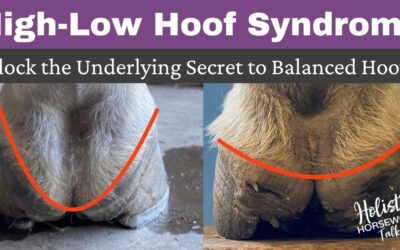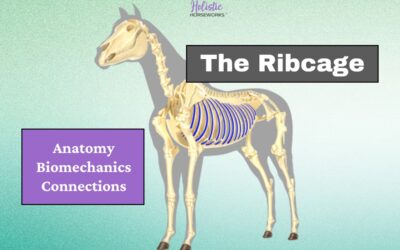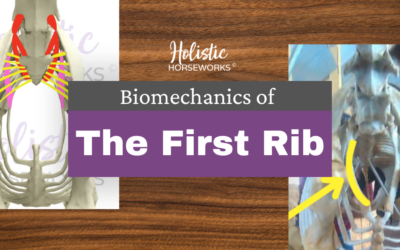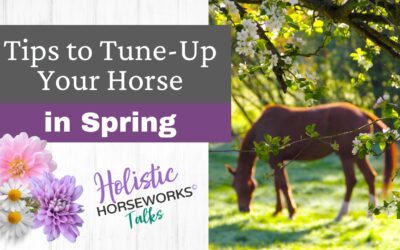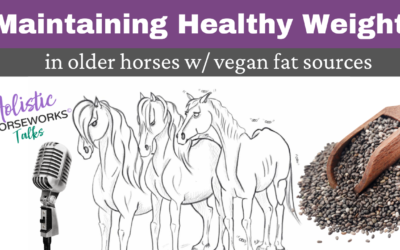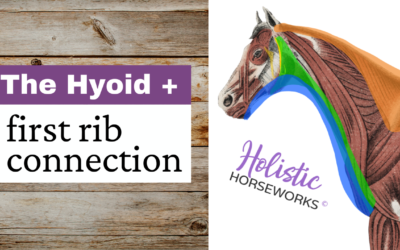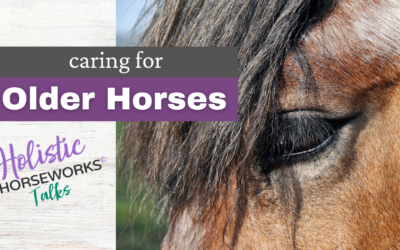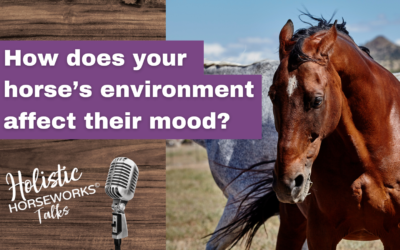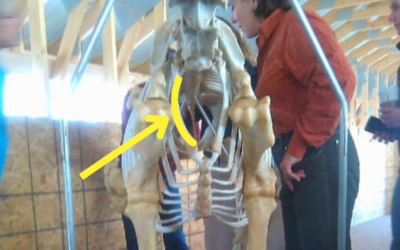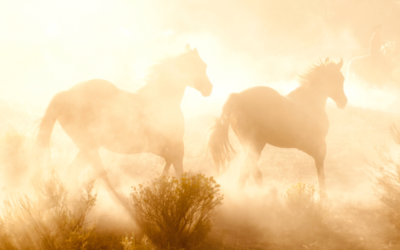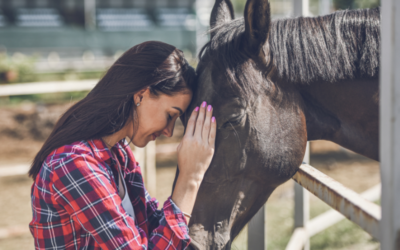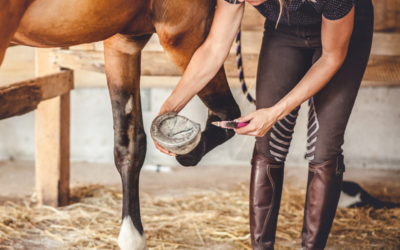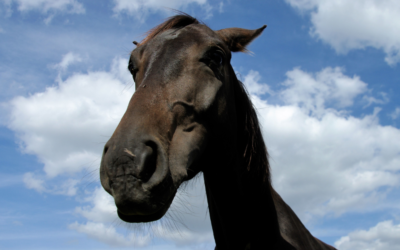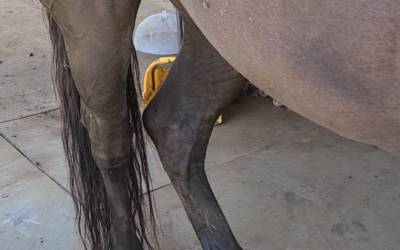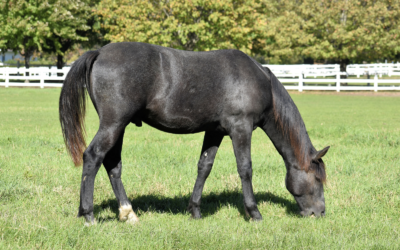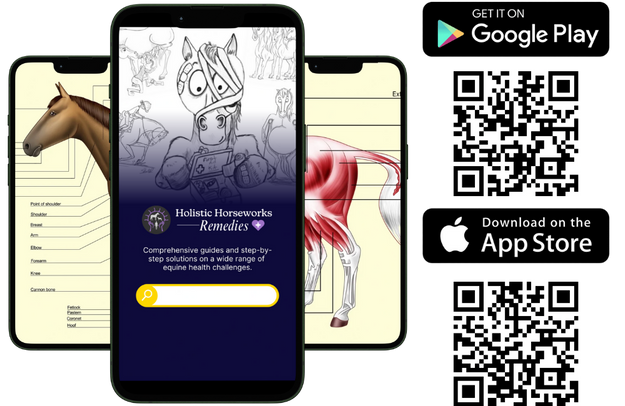High-Low Hoof Syndrome: Unlock the Underlying Secret to Balanced Hooves
High-low hoof Syndrome is a condition that has long puzzled vets, farriers, and horse owners. It refers to an imbalance in a horse’s hooves, where one hoof has a steeper angle compared to the other. Standing and working on this imbalance can lead to a variety of biomechanical issues that affect not just the hooves but the entire musculoskeletal system of the horse.
Foals Need Bodywork, Too!
Early bodywork can profoundly impact your foal’s development, ensuring they grow into healthy, balanced, and well-adjusted adults. Let’s talk about essential timing and techniques of early bodywork, helping you recognize signs of misalignment and understand the benefits of starting bodywork from a young age.
Summer Heat and the Best Electrolytes for Horses
As the summer heat sets in, it’s important to consider your horse’s electrolyte needs. Proper electrolyte supplementation can help keep your horse happy, healthy, and performing their best even in the hottest weather. Discover the importance of electrolytes and get our top recommendation for the best electrolytes, along with tips on when and how to use them effectively.
Summer Time Tune-Up for Your Horse
As the days grow longer and the temperatures rise, it’s time to give our equine companions the extra care they need to thrive during the summer months. From hoof health to hydration and performance support, here’s a quick guide to tuning up your horse for the season ahead.
The Equine Ribcage: Anatomy, Biomechanics, and Connections
Get more power + stamina! The ribcage has a vital role in your horse’s overall function. Its extensive connections to breathing, intestinal health, the psoas muscle, and spinal health significantly enhance your horse’s performance capabilities.
Biomechanics of the First Rib
Ready to explore some insightful and helpful biomechanics info about your horse’s shoulder, first rib, front limbs, and hooves? Mastering this knowledge can keep your horse happy and moving freely well into their 30s! How do you know if your horse dealing with troublesome issues in these areas? Read on…
Tips to Tune-Up Your Horse in Spring
As the vibrant colors of spring emerge and the weather warms, horse owners are gearing up to provide their equine companions with the care they need for the season ahead. Here are some essential spring tune-up tips to keep your horse happy, healthy, and ready for action.
Maintaining Healthy Weight in Older Horses with Vegan Fat Sources
In this episode, our founder, April Love, shares valuable information on maintaining the well-being of older horses, focusing on a simple recipe for a vegan fat source. The discussion delves into practical tips for horses with missing teeth, difficulty gaining weight, and the importance of identifying and addressing insulin resistance.
The Hyoid and First Rib Connection
Many people talk about the hyoid as the cause of an issue. The equine industry has established that the hyoid is connected not only directly to the tongue, forelimb, and poll but also indirectly to the hindquarter. However, looking at this from a holistic perspective, it is also important to consider what else the hyoid is affected by. The prominent first rib misalignment, as we talk about so often here at Holistic Horseworks, will not only impact the front end of the horse but also back to the hind end and even all the way up to the hyoid.
Are you ready to treat a wound in an emergency?
In this episode of Holistic Horseworks, April retells a story about an incident in one of her clinics. Despite being told repeatedly to NOT tie the horse to the corral panels, one student did just that. When the horse spooked, the corral panel hit another student in the head and caused a small but bloody gash. While her students were wondering what to do, April stepped in to treat the wounded student.
Caring for Older Horses: Arthritis, Mobility, Nutrition, and Hooves
In this episode of Holistic Horseworks Talks, April Love shares helpful practices for caring for older horses. She offers information not only about supporting the symptoms of arthritis but even more importantly, preventative measures to keep it at bay for as long as possible. April also shares many other useful tips for aging equines such as choosing healthy feed to keep on weight, the importance of daily stretching, and even hoof care.
How does your horse’s environment affect their mood?
In this episode of Holistic Horseworks Talks, host April Love delves into the often unseen environmental factors that can significantly affect a horse’s behavior, mineral assimilation, and overall immune system.
Through insightful anecdotes and practical advice, April sheds light on how power lines, water sources, and even natural elements like trees out in the pasture can impact a horse’s well-being.
The Importance of the First Rib in Horses
Join us in this episode of Holistic Horseworks Talks with April Love as we explore the often-overlooked significance of the first mobility rib in equine anatomy. She sheds light on how misalignments of the first rib can lead to various issues with people such as thoracic outlet syndrome, frozen shoulder, tendonitis, bursitis, and carpel tunnel syndrome. So think about all the things it could be impeding your horse’s freedom of movement in the front end. This is what starts the high-low hoof syndrome, horse not picking up right or left lead, mysterious lameness, kissing spine, behavioral issues, and even roaring in horses requiring expensive tie-back surgery.
Keep Your Horse’s Lungs Healthy (Especially During Fire Season)
Share this article:[dsm_social_share_buttons_child...
Horses Grieve, Too. How to Help Them.
In this episode of Holistic Horseworks Talks, April offers guidance on helping your horse cope with the loss of a pasture mate. Horse’s herd is their family, and the absence of a companion can be deeply distressing. While it’s natural to want to replace the lost companion immediately, April suggests giving your horse space to grieve and process their emotions.
Why won’t my horse pick up its hoof?
In this episode of Holistic Horseworks Talks, April, addresses a question about a horse that refuses to pick up one of its hooves. If the horse is avoiding putting weight on one hoof, the focus should be on understanding why it’s uncomfortable shifting its weight rather than forcing the hoof to be lifted.
Do you have a “Moody Mare?”
In this episode of Holistic Horseworks Talks, April Love discusses ways to handle moodiness in mares during the summer when they are cycling. The main concern is that the moody behavior may affect interactions with other horses, and impact performance at horse shows or events. By understanding the mare’s specific needs, balancing her hormonal system, and addressing any physical discomfort, it becomes possible to improve her behavior and overall well-being. Similar to humans, horses can become irritable when in pain.
Young Horses With Cow-Hocked Posture
A cow-hocked horse refers to a conformational issue where the horse’s hocks are positioned closer together than normal when viewed from the rear. We’ll explore why this happens and discuss ways to address and prevent such issues for a healthier, sound, and rideable horse.
Black Horses That Fade Out in Summer
Does your black horse fade to brown in the summer? In this episode of Holistic Horseworks Talks, April discusses how the color change is likely due to a copper deficiency in the horse’s diet. She suggests feeding the horse Dynamite Liquid Trace Minerals once a week to provide the necessary copper and prevent the fading of its black coat.
April’s Interview on Bookish Talk
Although I spend a lot of time caring for horses, I really care about people, too. I believe that by helping the owner, in turn you are helping the horse! A lot of the techniques in my equine...
Have an article you would like to see?

